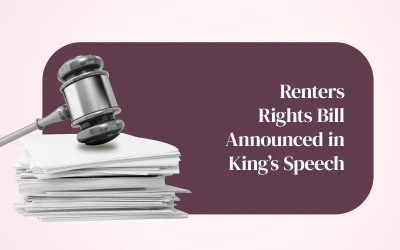Reactions to Tenant Fees Act 2019
Law 05/06/2019
The Tenant Fees Act 2019 came into force on the 1st of June. The law will apply to all new and renewed tenancy agreements that are signed after that date. The Act stipulates exactly what payments it is permissible for a landlord or letting agent to receive from a tenant, details any restrictions and limitations on those payments, and prohibits any payments that are not specifically listed.
Permitted Payments
For contracts signed after the 1st June, landlords and letting agents may only lawfully receive the following payments from tenants:
- Rent
- Tenancy deposit
- Holding deposit
- Payment in event of a default (lost key or unpaid rent)
- Payment for tenant-requested changes to the tenancy
- Payments for council tax, utilities, and other bills for ‘all-inclusive’ tenants
Restrictions and Limitations
Each of the above listed payments comes with detailed limitations and restrictions. For instance, it is prohibited to charge extra rent for the first month of the tenancy; tenancy deposits are limited to 5 weeks (6 weeks for properties with a rental value above £50,000 p/a); and holding deposits limited to 1 week’s rent.
The Landlords Guild website has an excellent breakdown of the permitted payments and their individual restrictions.
Reactions to the Law
David Cox ARLA Property Mark Chief Executive thinks the ban on tenant fees is an ill-thought out policy that will lead to rent increases:
“For many tenants, buying a property simply isn’t an option, and they must depend on the private rented sector to provide security, good standards and fundamentally, a home. Our findings show that landlords are likely to raise rents as a result of the ban on fees. Those tenants who move least frequently, which tend to be lower-income families, will be worst hit by rent rises.”
Campaigner Dan Wilson Craw of Generation Rent thinks the ban will empower tenants. He told the Guardian:
“The ban on letting fees won’t just save tenants money when they move home – it also gives them more negotiating power with their landlord. If faced with a rent increase or failure to fix a faulty boiler, tenants can now threaten to move out with more credibility, which should make the landlord think twice.”
Pearl Lettings Approach
At Pearl Lettings, we’ve successfully run our business for over ten years without charging our tenants any fees. Our model has always viewed landlords as our customers and tenants as consumers. Landlords pay us for the high quality of services we provide. Tenants are discerning shoppers who know the value in a well-maintained property.
Landlords who choose us as their property management firm will be fully compliant with all aspects of letting legislation. To find out more about how our services can take the stress out of letting a property, call our office on 01603 980770 or email hello@pearllettings.co.uk.
For regular news of changes to housing legislation, follow us on Facebook and Twitter.




